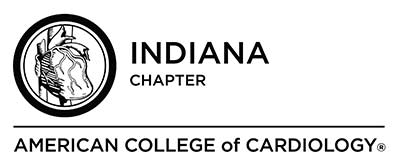Indiana-ACC Legislative Day
January 18, 2011
Agenda
ISSUE #1: SMOKEFREE INDIANA – TAKE ACTION NOW!
The Indiana-ACC would like to see a smoking ban in all public places. Smoking is a leading cause of the most common forms of heart and vascular disease, major lung diseases, and some of the most common forms of cancer. Nearly one-fifth of deaths from cardiovascular disease are attributable to smoking — deaths that are preventable. Passive or involuntary smoking and smokeless tobacco share many of these adverse effects upon health. According to a report by the Campaign for Tobacco Free Kids, 26.1 percent of adults Indiana smoke – the highest rate in the country. The same report estimates that smoking related health problems cost the state nearly $2 billion annually. Across the United States, more than 17,600municipalities are covered by a 100% smokefree provision in workplaces, and/or restaurants, and/or bars, by either a state, commonwealth, or local law, representing 74.1% of the US population. Thirty-eightstates and the District of Columbia have local laws in effect that require 100% smokefree workplacesand/or restaurants and/or bars. It is time for Indiana to be included in these smokefree statistics. The American College of Cardiology (ACC) strongly supports HB 1018, legislation which would create a comprehensive statewide smoke-free law. The bill prohibits smoking in: (1) public places; (2) enclosed areas of a place of employment; and (3) certain state vehicles.
- Overwhelming scientific evidence demonstrates that exposure to second-hand smoke has adverse effects on the cardiovascular system and causes coronary heart disease and lung cancer.
- In its 2009 report on secondhand smoke the Institute of Medicine concludes that smoke free laws reduce the number of heart attacks and save lives.
- In states and cities that have enacted smoke free laws reductions in hospital admissions for heart attacks have been documented.
- Smoke free laws protect restaurant and bar employees and patrons from the harm of secondhand smoke.
- No creditable evidence exists that smoke free laws hurt restaurant and bar patronage, employment, sales, or profits.
- Michigan, Ohio, Illinois, Wisconsin, Minnesota and Iowa have enacted strong smoke free laws. Indiana remains the only holdout in the Midwest.
We would also like to see the Indiana Tobacco Prevention and Cessation Agency remain an independent, autonomous agency of state government rather than get moved under the Indiana State Department of Health.
ISSUE #2: FUNDING OF HIGHER EDUCATION BENEFITS INCLUDING THE IU SCHOOL OF MEDICINE
Any further cuts or delay in fully funding the IUSOM and the planned expansion of the IUSOM by the General Assembly and this budget session could severely impact the expansion, already in progress, from moving forward and may result in the school reverting to pre 2009 enrollment. According to the IUSOM Physician Workforce Taskforce: “Optimally, IUSOM should increase the entering class by 30 percent, based on an average class size of 280. Assuming other components of Indiana physician supply remain relatively stable over time, projections indicate that by 2025, an IUSOM 30 percent expansion (taking into account student attrition) will grow the Indiana physician workforce to a level consistent with estimated requirements.”
ISSUE #3: OPEN ACCESS
Open access to medical care for Indiana patients is vital. Insurance contract issues can sometimes interfere with access to treatment. HB 1080 prohibits certain health plan contract provisions concerning a contracted provider’s acceptance of patients so that insurance companies will not be able to dictate the number of patients that a practice must accept. Insurance companies seek to develop value-driven health insurance products in response to pressure from employers and purchasers in order to improve quality and moderate costs. However, we are seeing that insurance companies continue to increase requirements for prior authorization, pre-certification and post-treatment outcomes information, which place additional demands on health care staff and lead to delays in treatment. We ask that insurance contract issues not be allowed to detract from good patient care.
Photos
[tabbyending]
Featured Articles
CV Board: It’s Time for A Board of Our Own
It’s Time for a Board of Our Own
Education IN ACCtion
We are delighted to bring you a series of brief, accessible, and impactful videos to provide you with knowledge beyond traditional clinical content.
Navigating MOC, Prior Authorization & QPP
Information about MOC, Prior Auth, and the Quality Payment Program.
Pathway from FIT to FACC
Learn how to make this transition happen quickly and easily.
News You Can Use
Read the latest news items about key ACC initiatives and topics.
Hearts INACCtion
Learn about our CHF support group project.
